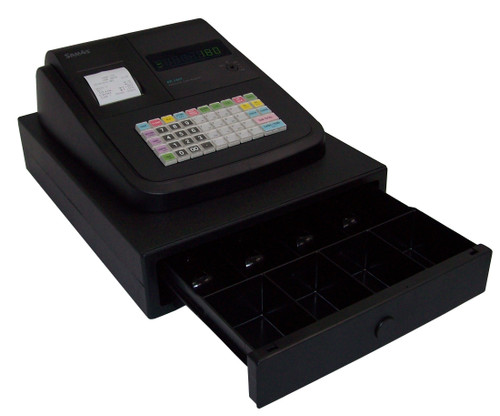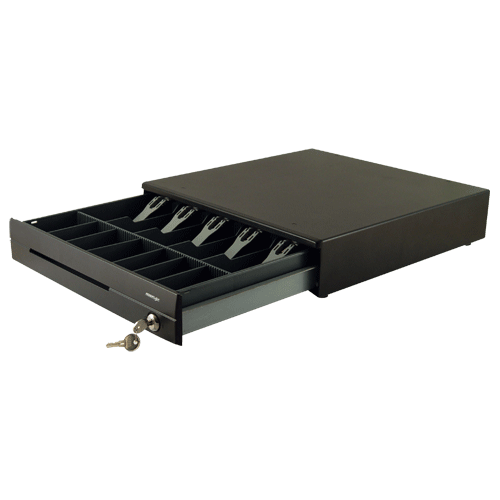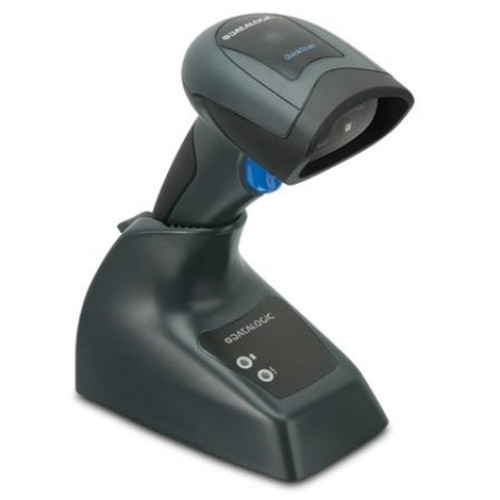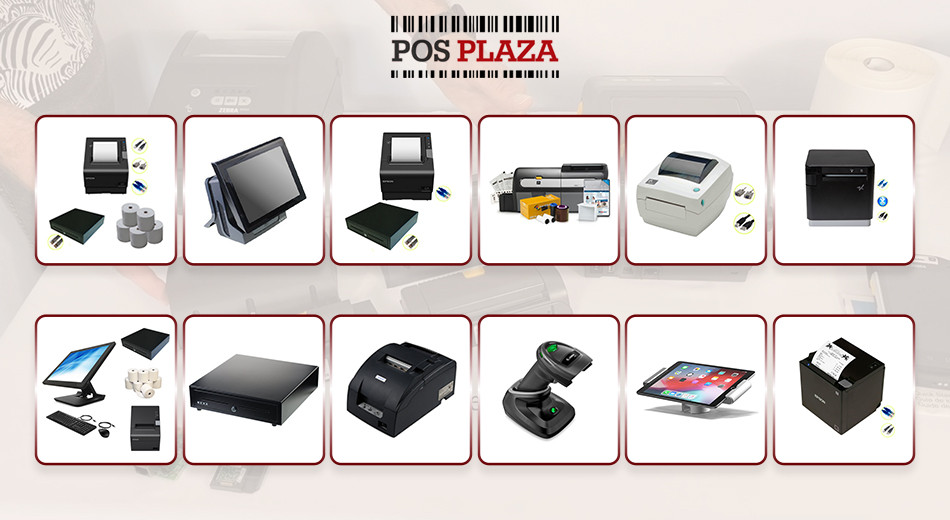Complete Guide to POS Hardware: Everything You Need to Know
A cash register is central to every business operation that deals with customer transactions continuously. However, that traditional machine has become a rare sight in retail stores and restaurants nowadays as majority of businesses have upgraded from traditional tills to fully integrated POS systems.
POS systems do more than just ringing up sales; they are equipped with top-notch technology and features to perform a range of tasks and streamline varied aspects of your retail operation. From scanning items at the point of purchase to storing customer details, tracking inventory and analysing sales reports, the right combination of software and hardware enables a POS system and the staff to perform day-to-day retail operations efficiently.
Unfortunately, many business owners tend to invest in the best POS software in the market while skimping on point of sale hardware. That usually happens because of lack of knowledge and that’s is why we have put together this blog which explains why POS hardware is as important as POS software and what hardware components you will need to get the most out of your POS system.
What is POS Hardware?
POS hardware refers to all the input and output physical devices that help complete sales transactions in retail stores or businesses alike. Some common hardware components that can be spotted at a point of sale station include – tablet or touchscreen monitor, cash drawer, scanner, receipt printer, a card reader or eftpos terminal. A business may need additional hardware units depending on its industry, operation and budget, ranging from customer display screens, kiosks and coin dispensers to kitchen printers, digital menu boards, kitchen display systems, etc.
The best part is there are a variety of choices in terms of brand, style, size and pricing available in the market. However, not all devices will work with your POS system. Every POS software is designed to work with specific set of POS hardware and peropherals. And that’s why many POS sellers offer POS bundles that include all the necessary equipment required for certain software to function smoothly.
Essential POS Hardware Components
Let’s now take a look at some basic hardware components you will need for your POS operation.
POS Register - The Brain of Your POS System

Don’t confuse a cash register with a fully integrated pos system as the two have different meanings; a cash register is a traditional sales or payment processing system while a register is referred to as a computer or ipad based POS system that usually consists of a computer or touch-screen tablet. Most registers combine an operating system and a computer screen of some kind to run your POS software on. Android tablets, iPads and touchscreen monitors are a preferable choice for most brick-and-mortar businesses today as they are cost-effective and have a minimum to no footprint. This allows small and medium-sized businesses to save money and counter space while availing all the benefits of a cutting-edge POS solution.
EFTPOS Terminal - Enabling Digital Payments
After a register, an eftpos terminal/reader is another essential piece of POS hardware that most modern businesses need to integrate into their point of sale station. Since the majority of today’s customers find debit and credit card payments more convenient than the traditional cash payment method, retail owners and restaurant businesses must invest in an eftpos terminal to provide a seamless experience to their customers and consequently boost customer retention and repeat purchases.
Eftpos terminals are available in many different varieties in the market from a basic magstripe card reader to the one that can accept both swiped cards and chip-card transactions. You can choose from a standard card reader that is compatible with multiple POS solutions to a proprietary reader that is designed to only work with the POS software you have in hand. There are credit card readers that work as a standalone device and then there are those that can be plugged into your tablet or be incorporated into your current register interface to work as part of an all-in-one POS terminal. So, there’s a huge variety in design, size and style to fit unique needs of businesses of all types. Many times, the type of eftpos solution you use is dependent on the bank/merchant facility you are with and the solutions supported by your POS software.
When choosing one, however, it would be helpful and beneficial for your business if your card reader is EMV-compliant, meaning it can accept chip-card payments as well as contactless and NFC payments.
Cash Drawer - Secure Cash Management

With credit card and digital payment methods becoming more popular amongst customers, many businesses have to no longer deal with huge amounts of money. But that doesn’t lessen the importance of a cash drawer in a retail store. With a robust lockable cash drawer in place, you can safely store the cash coming in and accept cash payments from customers and give them exact change, which streamlines the checkout process and increases customer satisfaction. Like most POS hardware components, a cash drawer can be wireless or may connect to your register via USB. Most retailers/restauranteurs also store their eftpos receipts in the cash drawer during the shift.
Receipt Printer - Generating Customer Purchase Records

Though more and more customers are shifting towards digital receipts, they are many who still like to keep paper receipts as proof of their purchase. So, no matter how modern your customers get, you will still need to provide them with the option of a paper receipt.
Receipts are not just a physical record of transactions customers make, but they are also a medium for the customer to return an item they are not satisfied with. That said, it is important for store owners to produce crisp and clear receipts to enable easy returns.
There are two main types of receipt printers : impact printers and thermal receipt printer. Impact printers are the traditional type which uses tiny pins and ink ribbons to form a series of letters and images on the receipt. These work well in kitchen and outdoor environments that are exposed to high temperatures.
Thermal printers use heat to produce text and graphics on thermal paper and are often a good choice for high-volume printing due to their quick and quiet functioning and cost-effectiveness. However, these are not suited to hot environments like food trucks and restaurants as the paper can turn black when exposed to heat, affecting the readability of the receipt.
Barcode Scanner - Speeding Up Checkout & Inventory Management

Just about any POS setup requires a barcode scanner to read product codes, manage inventory and speed up the checkout process. Just like receipt printers and cash drawers, you can connect a barcode scanner to your POS terminal through Bluetooth or USB, whatever connectivity option is available.
You can opt for a handheld unit to allow your employees to check out bulky items quickly while a stationary scanner can be used to check out small and lightweight items. In a high-volume environment, you are better off with a stationary scanner.
Besides these must-have POS hardware units, you may need some other peripherals too in order to ensure successful POS operation.
Additional Peripherals for POS Systems
Since not all businesses have the exact same POS needs, depending on the type of business you run, you might also need some of these additional units:
Self-Service Kiosk — Interactive computer terminals that allow customers to order items and check out on their own, saving their time and eliminating long queues at the point of sale.
Kitchen Printer — Used to send/print food order slips straight from the point-of-sale to a restaurant’s kitchen.
Additional Tablets/Mobile Devices for Tableside Ordering — Another important hardware for food and beverage service-centric businesses which allows waiters to accept orders on a tablet from tables and transfer the order details electronically to the POS terminal and/or kitchen.
CAS Scales — Scales are needed in stores that require checking out items based on weight rather than quantity.
Final Thoughts: Get the Best POS Hardware for Your Business
With the right set of hardware in place, you can ensure a smooth and faster checkout process and enjoy other benefits such as accurate accounting, improved inventory control, improved employee scheduling and productivity, and effective reporting and analysis.
At POS Plaza, we not only offer well-curated POS hardware bundles but also help you find a solution that fits your needs and budget. Our experienced sales team takes the research work out of your purchase process and recommends the best for your business to suit your needs today and the future.


